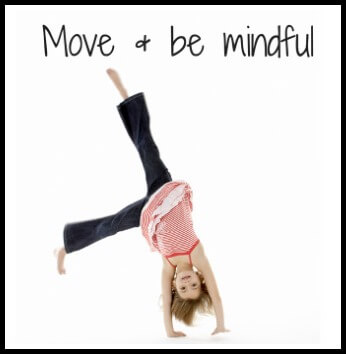We couldn’t be more excited to be featuring this post written by our good friend, Lindsey Lieneck from Yogapeutics. Lindsey is a fellow occupational therapist and child development expert who has combined her OT education and training with her love of yoga (she’s a certified yoga instructor) to create the awesomeness that is Yogapeutics – an aerial yoga studio for kids with a focus on “allowing kids to thrive in school and life” through mindfulness and sensory strategies. Yep, you read that right…aerial yoga! Awesome, right? Trust us, you’ll want to see it for yourself, so be sure to click through to see one of Lindsey’s videos about aerial yoga for kids and the great services they offer at the Yogapeutics studio. We can’t tell you how sad we were when we found out that Lindsey’s studio was located in far-away Austin, TX. We’re DYING to get our kids (and ourselves!) into those aerial yoga hammocks!! Road trip, perhaps? :)
Today, we’re sharing Lindsey’s thoughtful and informed post about supporting self-regulation in kids. Whether you have a little one who consistently struggles with extreme emotional reactions to daily activities and routines or you’re just trying to make your way through the terrible twos, this post is for you. We love the way Lindsey breaks down her suggestions for 4 Surprising Ways to Support a Child’s Self-Regulation and Avoid Melt Down into simple, easy-to-use tips in this post. So without further ado, here’s Lindsey!
A child’s brain, gifted with academic talents or not, isn’t yet developed enough to self-regulate intense negative emotion on it’s own. When feelings get big, the ability to listen to logic or make decisions gets small (or nonexistent) for many kids. When it comes to a child on the brink of meltdown, a self-regulating strategy is to move the body and adjust the environment mindfully. That’s all. Just move and be mindful. It’s such a simple concept, isn’t it? Most people ignore it altogether thinking something so easy and accessible couldn’t possibly be an answer to such complicated power struggles and family dynamics, but I hope you will trust me on this one. READ MORE…
Latest posts by Claire Heffron (see all)
- Pro Tips for Conquering Toddler Separation Anxiety - April 25, 2024
- Cute Zipper Bags for Therapists - April 18, 2024
- Fairy Tale Games and Toys - April 12, 2024


[…] Child Development Featured Post: Supporting Self-regulation […]